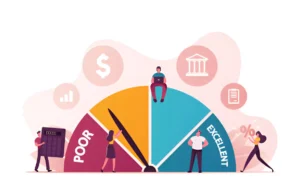Understanding the Impact on Credit Score and History

Your credit score is crucial for major financial decisions like buying a car, getting a mortgage, or renting an apartment. Understanding what impacts your credit score and history helps you make smarter choices and secure your financial future.
What Makes Up Your Credit Score
Your credit score is a three-digit number designed to estimate how likely you are to repay borrowed money responsibly. Most commonly calculated by FICO or VantageScore, your score typically ranges between 300 and 850. The higher the number, the better.
Here’s a quick rundown of the key factors that influence your credit score:
- Payment History
Your track record for paying bills on time is the most significant component, making up about 35% of your score. Even a single late payment can have a noticeable effect.
- Credit Utilization
This refers to how much credit you’re using compared to your total available credit. Experts recommend keeping this ratio below 30% for the best impact.
- Length of Credit History
How long you’ve been using credit matters. A longer history generally boosts your score, as it provides more data for lenders to assess.
- New Credit
Opening several new accounts or taking on new loans in a short time period can be a red flag to lenders and may temporarily lower your score.
- Types of Credit
The mix of different credit accounts (such as credit cards, car loans, and mortgages) also influences your score, showing your ability to manage various types of debt.
How Credit History Shapes Your Financial Journey
While your credit score is a snapshot, your credit history tells the whole story. This historical record details your borrowing and repayment habits, dating as far back as your first loan or credit card.
Lenders, landlords, and even some employers review your credit history to assess your reliability. A positive track record demonstrates financial responsibility, leading to better interest rates and more favorable loan terms. On the other hand, missed payments, defaults, or bankruptcies can haunt your history for years.
Common Factors That Affect Credit Score and History
Understanding what can alter your credit standing is crucial. Here are a few situations that commonly impact both your score and your history:
On-Time and Missed Payments
Consistent, timely payments strengthen your score and build a positive history. Missing a payment, especially if it’s more than 30 days overdue, can result in significant damage and stays on your record for up to seven years.
Credit Card Balances
Maxing out your credit cards or keeping balances high can lower your score, as it increases your credit utilization. Paying down your balances, or keeping them low, will likely improve your score and show good fiscal management over time.
Applying for New Credit
Every time you apply for a new credit account, a lender will perform a hard inquiry into your history. While a single inquiry has minimal impact, multiple inquiries in a short time can lower your score, signaling financial distress or overextension to lenders. This is especially important to consider when applying for personal loans like those in Utah, where responsible borrowing can help maintain a healthy credit score.
Closing Accounts
You might think closing old cards helps, but it can actually hurt your credit. Closing an account reduces your available credit, raising your utilization ratio, and may shorten your average account age.
Defaulting on Loans
Defaults, charge-offs, and other negative marks can tank your credit score quickly and remain on your report for years. It’s critical to keep communication open with lenders if you’re unable to pay, as there may be options that help you avoid damaging your record.
Steps to Protect and Improve Your Credit
Improving your credit score and history doesn’t happen overnight, but consistent, smart financial behaviors will get you there. Here are practical steps to get started:
- Always pay bills on time. Set calendar alerts or autopay to avoid missed payments.
- Keep credit utilization low. Aim to use less than 30% of your available credit.
- Limit new credit applications. Only apply for credit or loans when you truly need them.
- Check your credit reports annually. You’re entitled to one free report each year from major bureaus. Review for errors and dispute inaccuracies.
- Address negative marks. If you’ve had missed payments or defaults, work to bring accounts current or negotiate with creditors.
- Maintain a mix of credit. Responsibly managing different account types improves your credit profile over time.
Conclusion
Your credit score directly affects your financial opportunities. Understanding what impacts your credit and planning accordingly can make a big difference. By monitoring your credit and practicing good habits, you’ll unlock better rates, offers, and financial freedom.
Read more: How Early Care Shapes Future Success in Children
How Real Estate Developers Use Naming to Increase Property Value
What Are Autonomous Cars and How Do They Benefit You






